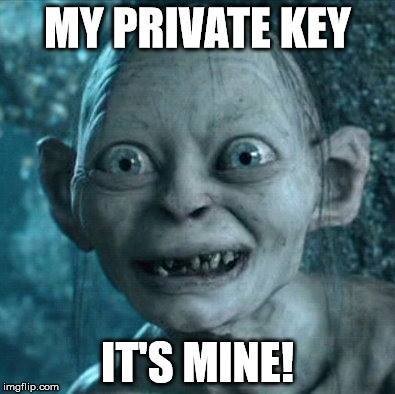--Originally published at El Machetero Blog´s
Did you ever wanted to pass a note to a classmate without the professor knowing ? Or at least if the note was caught, that the teacher wouldn’t know what you were talking about? Well, this was something pretty recurrent that I remember back on my elementary school days, and typically what we did was inventing some type of ‘encoding’ to the alphabet. A simple one was just taking the alphabet and re-assign each letter with the one alphabet spelled backwards. Something like:
Then apple would not be spelled “apple”, but “zkkov”. Back in the day this gave us a sense of privacy, and do you know where else privacy is a big deal? That’s right, on the internet. On the medium this same principle of encoding a message to increase its security is known as Cryptography.

Cryptography ensures not only the security that only the ones intended to can read the message, but also that it won’t be changed by other people, and the authentication of the sender and receiver; because, If only your friend-crush Anna knows the secret key, and your love letter gets public then you can be sure you don’t need Anna close anymore.

It is clear that cryptographic methods are not as simple as the ciphers described above (they should not be), for that we have several algorithms that can fall in two main categories:
- Symmetric cryptography
- Asymmetric cryptography
Symmetric has some main weaknesses to asymmetric because this methods only use one key to encrypt and decrypt the message. If the key gets intercepted in the course of exchange between the emisor and receptor, then you are basically dead.
On the other hand Asymmetric uses two keys: Public and Private. The public one is used in order to be shared to 

![]()

Did you get a little paranoid of your messages on the web? Rest assured! Almost all of the services on the internet offer this type of security (you know the big companies like google, dropbox, facebook…etc), so as far as we know things like instant messages and passwords employed on this sites rely on cryptography and are not that easy to crack.
Contributors: Audray, Kimbuca, and Cesar


